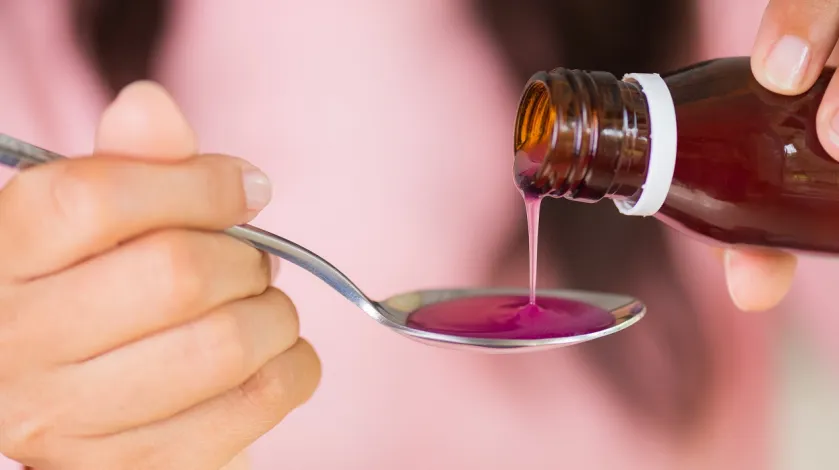Safety Tips for Parents during the Pediatric Medication Shortage
Author

Kristopher Young, PharmD, Chief Pharmacy Officer
Supply chain issues and increased demand during a very active respiratory virus season, have caused a shortage of common over-the-counter pediatric medications, including liquid ibuprofen and acetaminophen.
For parents caring for sick children during the current shortage, it’s important to know that not all formulations of medications used to treat fevers in children are the same and giving them the proper dosage based on their age and weight is essential for their safety.
Kristopher Young, PharmD, South Shore Health’s Chief Pharmacy Officer encourages parents with any questions about pediatric medicines to speak with their child’s healthcare provider and a pharmacist and offers these safety tips from the Institute for Safe Medication Practices (ISMP).
How mistakes happen
Most stores and pharmacies that carry infant’s and children’s ibuprofen routinely stock both concentrations. The carton and bottle labels of the two concentrations sometimes look similar, making it difficult for parents to tell them apart. So, parents might buy the wrong concentration of ibuprofen liquid without knowing it.
Here’s what you can do
To determine the safe dose for children, you will need to know both your child’s weight as well as the concentration of the liquid medication. Ideally, there should be just one concentration of ibuprofen liquid, similar to acetaminophen. But until that happens, take the following steps to reduce the risk of mix-ups and serious harm from ibuprofen overdoses:
- When talking with healthcare providers, let them know your child’s weight and which concentration of ibuprofen you have on hand or will buy. To be clear, refer to the more concentrated ibuprofen (50 mg per 1.25 mL) as “infant drops.” Refer to the less concentrated form (100 mg per 5 mL) as “children’s ibuprofen.”
- Before you leave the hospital or healthcare provider’s office, be sure you understand the dose (mg) and volume (mL) for each dose based on the concentration you will be using.
- Always read and follow the instructions on the ibuprofen label of the specific medicine you are using.
- Measure each dose carefully using a dosing cup or oral syringe that came with the medicine; never use household measuring spoons, tablespoons, or teaspoons.
- Reread the directions before every dose. As children grow, their doses change over time.
- Never give more than four doses in one day. Write down the time each dose is given and wait 6 hours before giving the next dose. Giving another dose too soon could lead to serious side effects.
- Do not give ibuprofen to babies younger than 6 months, unless directed by the baby’s doctor.
- Do not give children smaller doses of adult medicine or medicine intended for older children. Giving your child a smaller dose of medicine meant for an adult or older child is dangerous. Children are not merely mini-adults who can take smaller doses of adult medicine. Adult medicines are formulated specifically for an adult body. Children's bodies are less developed. An adult medicine could work very differently on them or cause serious side effects. Always look at the drug facts label for directions and confirm the dose with your pharmacist.
- If your child has been given (or takes) more than the recommended dose, contact your local poison center (1-800-222-1222; available 24 hours a day, year round). Tell poison control your child’s age, weight, gender, how much ibuprofen was given (or taken), and when the last dose was given (or taken). If you cannot get to a phone or computer, go to the nearest emergency department immediately. Do not wait for symptoms to start, as some children will not show symptoms right away.
For further guidance on the pediatric medication shortage, please read an open letter from Mass. DPH and the American Academy of Pediatrics.
Kristopher Young, PharmD is the Chief Pharmacy Officer and Executive Director of Pharmacy, Laboratory and Clinical Nutrition Services at South Shore Health.
Author

Kristopher Young, PharmD, Chief Pharmacy Officer







